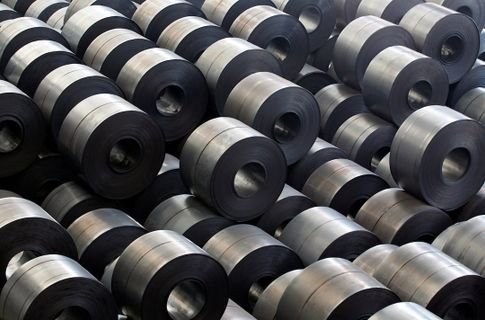The US President announced tariffs on all steel and aluminium imports.
US President Donald Trump announced new tariffs of 25% on all steel and aluminium imports, effective March 4, 2025, aimed at protecting domestic industries and boosting the US steel and aluminium sectors. The decision is part of a series of trade measures that have hit India, including the 2018 tariffs on steel and aluminium imports.

https://newshedline643.blogspot.com/2025/02/blog-post_11.html
India's response to the new tariffs has been relatively calm, reflecting a policy of restraint and strategic patience. Union Steel Secretary Sandeep Paundrik said India's steel exports to the US are minimal, with only 95,000 tonnes exported last year out of a total production of 145 million tonnes, Moody's Ratings Assistant Vice President Hui Ting Sim said the US tariffs would lead to increased competition and oversupply in other steel producing markets. The Indian steel industry is facing challenges due to high steel imports from China, which rose 80% to 1.61 million tonnes between January and July 2024. The steel ministry had earlier requested the Union commerce ministry to impose a 25% duty on steel products to resolve the issue.
India's domestic market is strong and growing, which could help mitigate the adverse effects of tariffs on the Indian steel industry The timing of Trump's tariff announcement is significant, as it comes just days ahead of Prime Minister Narendra Modi's visit to Washington, which could complicate trade relations between the two countries. India and the US had previously agreed on a trade resolution during Modi's visit to Washington in 2019, where India imposed tariffs on 28 US goods in response to Trump's tariffs. India's response to the new tariffs reflects a careful balancing act between protecting its domestic industry and maintaining diplomatic relations with the US. Although India has not yet imposed retaliatory tariffs, it has expressed concern over the potential impact of tariffs on its steel producers and broader trade relations. The tariffs could also have a broad impact on global trade, potentially leading to a multi-front trade war and increasing competition in the steel and aluminium sectors. Analysts warn that while the US steel and aluminium industry may benefit in the short term, global trade frictions could intensify, leading to lasting economic consequences. In summary, while the immediate impact of tariffs on India's steel industry may be limited, as export volumes to the US are relatively small, the broader implications for global trade and competitiveness in the steel and aluminium sectors could be significant. India's response reflects a strategic approach to managing the challenges posed by tariffs, while maintaining its domestic market strength and diplomatic ties with the US.